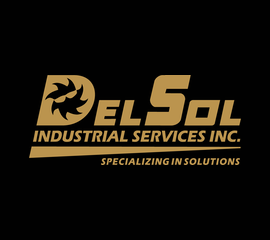1. Figure out what you need. Fundamentally consider your process. Do you need batches of sand or is a continuous sand mixer in order?
2. Once you define the type of mixer you desire, think about how much sand you need. If it is a batch, how large a batch must you have, and how many batches per hour will fulfill your product requirement. Something to consider in this is realistic batch size. With mixing sand, there is a point of way too much sand in a batch. Mixers tend to lose efficiency when they are not properly sized. Additionally, if you over-specify the size requirement, the equipment specifications become substantial and the equipment and its components become ridiculously priced.
3. What all components are needed to be added to the sand. Liquid and solid or powder. Make a clear list of components and amounts that correspond you the amount of sand. Additionally, note the density of dry materials and viscosity of wet materials to aide manufacturers in properly specifying feed equipment.
4. Construction. In sand mixers, you often get what you pay for. Buy heavy duty, durable equipment. If it looks pretty and well engineered (lots of ribs, and hinges, and doors, and access,etc, you are buying exactly that. You need to buy a sand mixer. It is a brutal process that is incredibly destructive to the equipment. Buy something very heavy that is easy to maintain.
5. Spare parts. Buy a mixer with parts that are readily available. Buy from someone who uses well known, high quality components. If they remove all of the manufacturer information, do not do business with them. It means they are trying to sell you spare parts more that they are trying to sell you a good sand mixer.
6. Where is it made? If construction, safety, quality, etc. mean anything to you at all, check where the product is actually made. Mixers sold by Del Sol are made in the USA. Good service. Good engineering. Good accessibility. Good free market entrepreneurial spirit. This is what we look for in our vendors. Additionally, we seek to sell the best and feel that we do.
7. Experience level. How many SAND mixers have they made? Not dough mixers, not plaster mixers, etc. How many SAND mixers have they made. There is a difference.
8. Check references. Yes new ideas come out. Yes innovation is important. But, check the references from your considered vendors. Ask for both good and bad references. If they say there are no bad references, probably untrue. A bad reference happens from time to time. Its how your vendors handle a bad situation that define them as a vendor.
9. Consider morality. If you have heard of a vendor cheating customers, don't buy from them. If you hear about a vendor not backing a warranty, don't buy from them. If they are sleazy, try to buy your business, or try to sell on something other that a plain old solid piece of sand mixing equipment. Don't buy from them.
10. Is this someone you want to do business with again? Do they have engineering savvy? Do they deliver promised items on time? Do they take care of your requests?
11. Specs. Some specs are listed above. There are many more. Make sure that before you start shopping you write down what you need so that each vendor receives the same info. You will learn as you go, change specs as you go based on things that different vendors offer. Write them down. Consider re-submitting rfq's. Vendors are hungry and will often make changes to their standard products to get your business. Be respectful though. I cannot tell you how many times we have developed specs, designs, etc. for customers and they simply gave them to cheaper competition. You have to respect the vendors that bring the good ideas to the table. Failure to do so can quickly create bad feelings or the loss of a vendor on your project that could really advance your facility. Additionally, sharing of great ideas and certainly designs borders on theft. You will normally only do this once to a high quality vendor.
12. Consider price. Notice this is low on the list. Sort through the important details first. Don't start with price, start with the best machine that you can buy. Price will sort itself out as the project advances. If you start low cost, your entire plant will end low cost. We used to sell sand mixers in China. Why? Huge market. We sold American quality product there. Let's say a machine sold for $20,000 from us. The Chinese "equivalent" would cost maybe $10000-$12000. What was different. The cheap version had to be replaced every 3-4 years. Ours would last 20. WHICH WAS CHEAPER?
Thank you for taking the time to read this. If we can answer any specific questions for you, please let us know.
Lee White - President - Del Sol Industrial Services, Inc.



